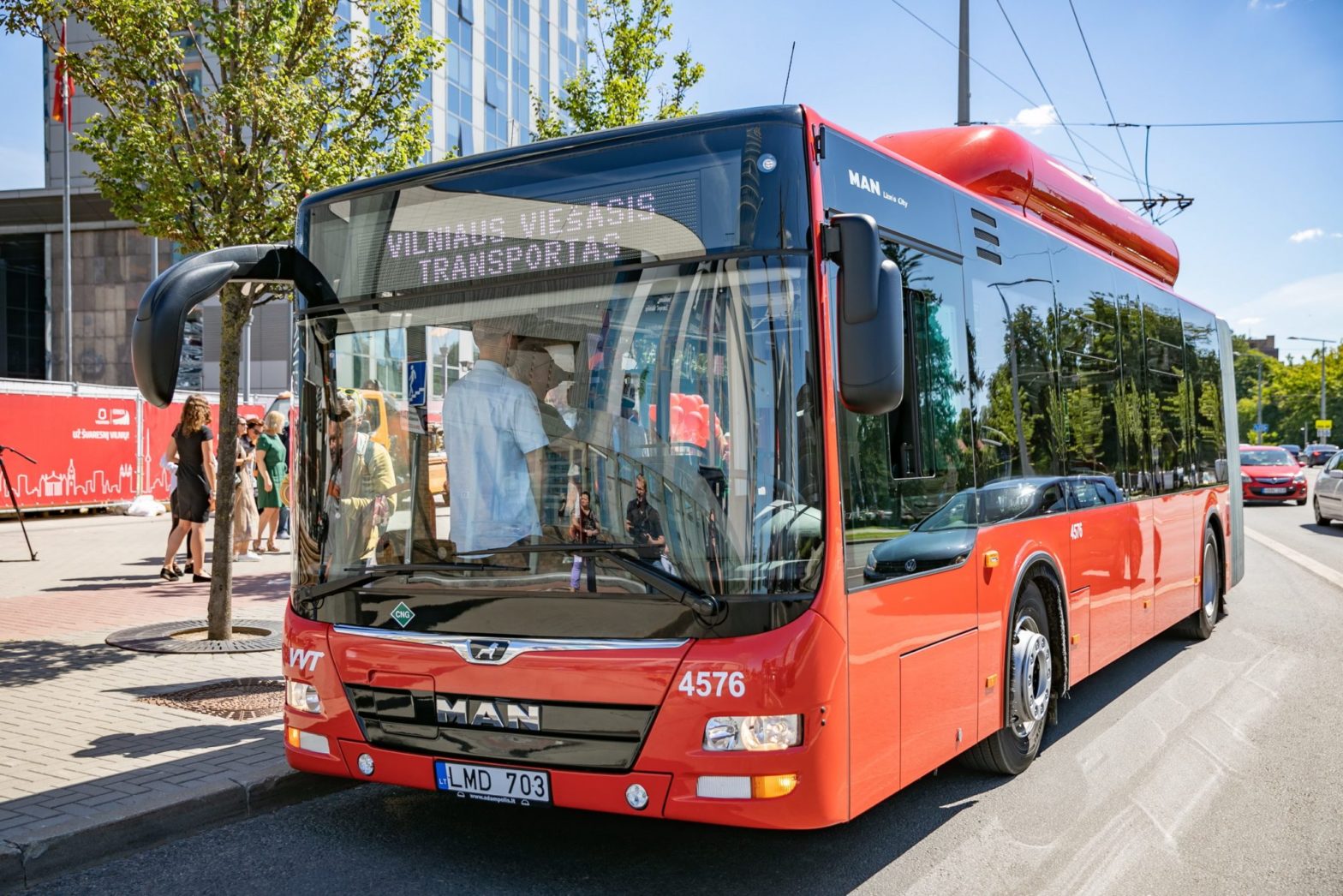
Photo: city of vilnius
Vilnius expands electric bus fleet as part of sustainable transport plan
04 April 2024
by Christopher Carey
Lithuania’s capital Vilnius has approved a big expansion of its public transport services, including the introduction of 12 new bus routes and a requirement that these can only be served by electric buses.
The city council approved the measure last week, with over half of existing bus services set to run more frequently and with new amendments to the public procurement conditions for private carriers on regular bus routes.

Speaking to Cities Today, Vilnius’ Chief Sustainability Officer Anton Nikitin said the decision will be transformative for public transport.
“It’s a huge change – [the] electrification of the fleet, and a more competitive field for operators.
“Most important is the better coverage of the network, with more people served and lower waiting times.
“This really contributes to our sustainable mobility agenda.”
Remote areas
There are currently 106 bus routes in Vilnius – six express, 83 regular and 17 trolleybus services.
Through the changes the city aims to ensure that, even in remote areas, passengers will not have to wait more than 15 minutes for a bus during peak hours.
A survey of residents revealed that the most pressing concerns for commuters were the modernisation of the public transport fleet, an adjustment of routes, and an increase in the frequency of trips. Currently, buses run every 20-75 minutes in some peripheral areas of the city during peak hours.
With new carriers entering the market and changes to route schedules, buses will run every 15 minutes during peak hours even in remote areas and more often in areas with higher passenger flows.
Currently, public transport services are provided by three providers – UAB Vilniaus viešasis transportas, UAB Transrevis and UAB Kautra – which are managed by the municipality. Going forward the city plans to provide almost half of the new services through private carriers brought in through tenders.
“Liberalisation of the market will raise public transport to another quality level,” said Vilnius’ Mayor Valdas Benkunskas.
“Greater competition between carriers, [an] updated bus fleet and route changes will ensure the availability of public transport not only in the central part of the city, but also in more remote and new districts.
“At the same time, this will reduce the harmful impact of the transport sector on the environment, as private carriers will transport passengers with electric buses.”
Image: City of Vilnius






